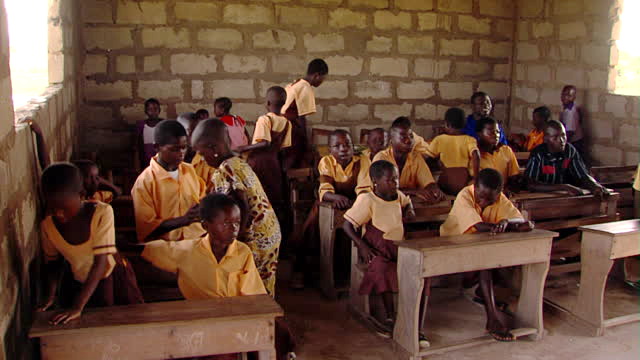
No time to waste - all girls and boys in school and learning
As we mark the first anniversary of the adoption of the Sustainable Development Goals (SDGs), it is important as a country to reflect on the promise, as well as the challenges in progressing towards the SDG targets with regards to education in Ghana.
Advertisement
Research has revealed that education, especially at the secondary level, is indispensable for delivering on the promise of the SDGs. All 17 of them. If all students in low-income countries left school with basic reading skills, 171 million people could be lifted out of poverty. This can also be true for Ghana.
Yet, according to the Global Education Monitoring (GEM) Report 2016, lower-middle income countries such as Ghana, are only likely to achieve universal primary attainment in 2054, universal lower secondary attainment in 2066, and universal higher secondary attainment in 2088. Unless there is a quantum leap and rapid acceleration unlike any observed to date, the promise of the education SDG - Ensure inclusive and equitable quality education and promote lifelong learning opportunities for all - will remain a distant aspiration.
The projections show that universal secondary completion requires an unprecedented and immediate break.
In Ghana, there is no doubt that the enrolment increase in kindergarten and basic education is a cause for celebration: getting children in school is an essential first step. However, our current challenge is to address the learning crisis in Ghana. Only three out of 10 children in primary school can read with competency; a troubling fact considering that the bulk of education expenditures is focused on primary level teacher salaries. Clearly, we need more scrutiny and understanding. What are we doing to ensure that trained and performing teachers are deployed in schools where they are needed? Do they speak the local language? How are we addressing teacher absenteeism, motivation and accountability for learning outcomes?
It is equally critical to ask who the girls and boys being silently excluded in schools and not learning are. According to recent assessments, it is students in the deprived districts who are performing lower than those in non-deprived districts; and students in urban settings performing better than those in rural settings. And children who face learning difficulties in their early years often struggle to catch up with their peers.
The Ghana Demographic Health Survey for 2014 indicates a similarly worrisome situation regarding the pathways of progression through the basic education cycle. Among the 15-18 age cohort, for every 100 children, 96 may have entered primary school, but only 16 would have transitioned to senior high schools. For the poorest wealth quintiles, the figure drops to 90 children entering primary school and only four transitioning to senior high school. Girls are further excluded, in particular when it comes to early marriage or pregnancy, both of which act as critical barriers to completing basic education.
The current political debate and advocacy around free secondary education is ramping up in the electoral campaigns. And this is very much needed if we are serious about supporting the growing numbers of first-generation learners reaching this level. Yet, we also have to be mindful that the increased investments at the secondary level need to be constantly balanced in relation to basic education where the lack of quality is hampering transition to secondary level, especially among disadvantaged girls and boys.
The education SDG, while no doubt ambitious, also provides a critical opportunity to take stock and realistically assess what is achievable and work towards it. As the GEM report observes, even a modest acceleration of education progress could make a big difference to other SDGs. However, it is also important to remember that education as a catalyst for wider development goals is possible – only if it is equitable. That means making conscious targeted efforts and investments to ensure that all children and young people – and not some - can benefit equally from education’s transformative power.
The time to act is now … and surely with the elections around the corner, an initial step is to prioritise accountability for learning – starting with foundational reading and numeracy - for all children as a non-partisan political agenda.
The writer is the Chief, Education UNICEF.




